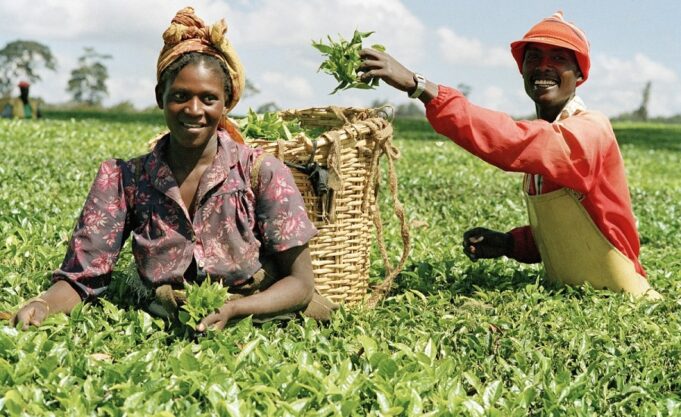African Development Bank (AfDB), Islamic Development Bank (IDB) and the International Fund for Agricultural Development have voted $1 billion to deliver special agro-industrial processing zones in 24 States of Nigeria.
This is in addition to an initial $520 million voted by the development partners for the development of eight special agro-industrial processing zones in the country.
Senior Special Assistant to the President on Media and Communications, Office of the Vice-President, Mr Stanley Nkwocha, in a statement said
The President of AfDB, Dr. Akinwumi Adesina, disclosed this in the United States at the Norman Borlaug International Dialogue, World Food Prize 2023, in Des Moines, Iowa.
Vice-President Kashim Shettima, who is attending the event in pursuance of the food security and diversification policy of the Tinubu administration, had on Wednesday delivered his keynote address at the ongoing Dialogue.
In a speech titled, “From Dakar to Des Moines”, Adesina said that the decision to pump such huge funds into Nigeria’s agribusiness was part of the resolve to develop Special Agro-Industrial Processing Zones (SAPZs) in 13 countries.
He said: “We are investing heavily in the development of SAPZs to support the development of agricultural value chains.
“Food processing and value addition, enabling infrastructure and logistics to promote local, regional, and international trade in food.
Jonathan visits Tinubu after Supreme Court victory
“The African Development Bank Group is investing $853 million in the development of the Special Agro-Industrial Processing Zones.
“The bank has mobilized additional co-financing of $661 million, for a total commitment of $1.5 billion.”
Adesina said that the bank was deploying effective partnerships at scale, adding that currently it is implementing 25 Special Agro-industrial Processing Zones in 13 countries.
“The AfDB and the International Fund for Agricultural Development provided $520 million for the development of eight special agro-industrial processing zones in Nigeria.
“The second phase of the programme aims to mobilize an additional $1 billion to deliver special agro-industrial processing zones in 24 States of Nigeria.”
Adesina regretted that while much progress had been made in African agriculture, 283 million people still go to bed hungry, about a third of the 828 million people that suffer hunger globally.
He described the Norman Borlaug International Dialogue World Food Prize 2023, as a journey and narrative combining the power of science, technology, policies and politics to ensure that Africa fully unlocks its agricultural potential, and feeds itself with pride.
Adesina thanked Vice-President Kashim Shettima, and the President of Ethiopia, Sahle-Work Zewde, for participating in the global event.
He said that their presence was an indication that Africa had the political will and was fully ready to tackle food insecurity as well as make hunger history on the continent.
Earlier, Shettima, who spoke on the Tinubu administration’s initiatives for food security, said the quality of present leadership in Nigeria and the rest of Africa would drive transformation in agriculture and other sectors.
Shettima assured the gathering of investors and stakeholders in the agricultural sector that Tinubu was a quintessential 21st century modern African leader who is determined to redefine the meaning and concept of modern leadership.
On wheat production, Shettima said the target of Nigeria towards wheat production was to achieve 50 per cent self sufficiency in the next three cycles.
On rice production, Shettima said the major challenge for Nigeria was the insufficiency of paddy rice.
He said that Nigeria had adequate milling capacity, adding, “but, we need to produce three to four million tonnes of paddy rice to meet our requirement of about 2.5 million tonnes per annum.
“We have 75 million hectares of arable land and most of it suited for rice cultivation.”
The vice-president, who spoke on SAPZs, reiterated the Tinubu administration’s commitment to providing an enabling environment for investors in the zones.
He said government would create an SAPZ development authority that would operate like a one-stop shop where regulatory and associated issues would be addressed.
- Tinubu to ministers: Obtain presidential clearance for police escorts - December 10, 2025
- Jigawa: Between Gov Namadi and Persons with Disabilities - December 10, 2025
- Death came for the king’s seven sons, by FUNKE EGBEMODE - December 10, 2025










